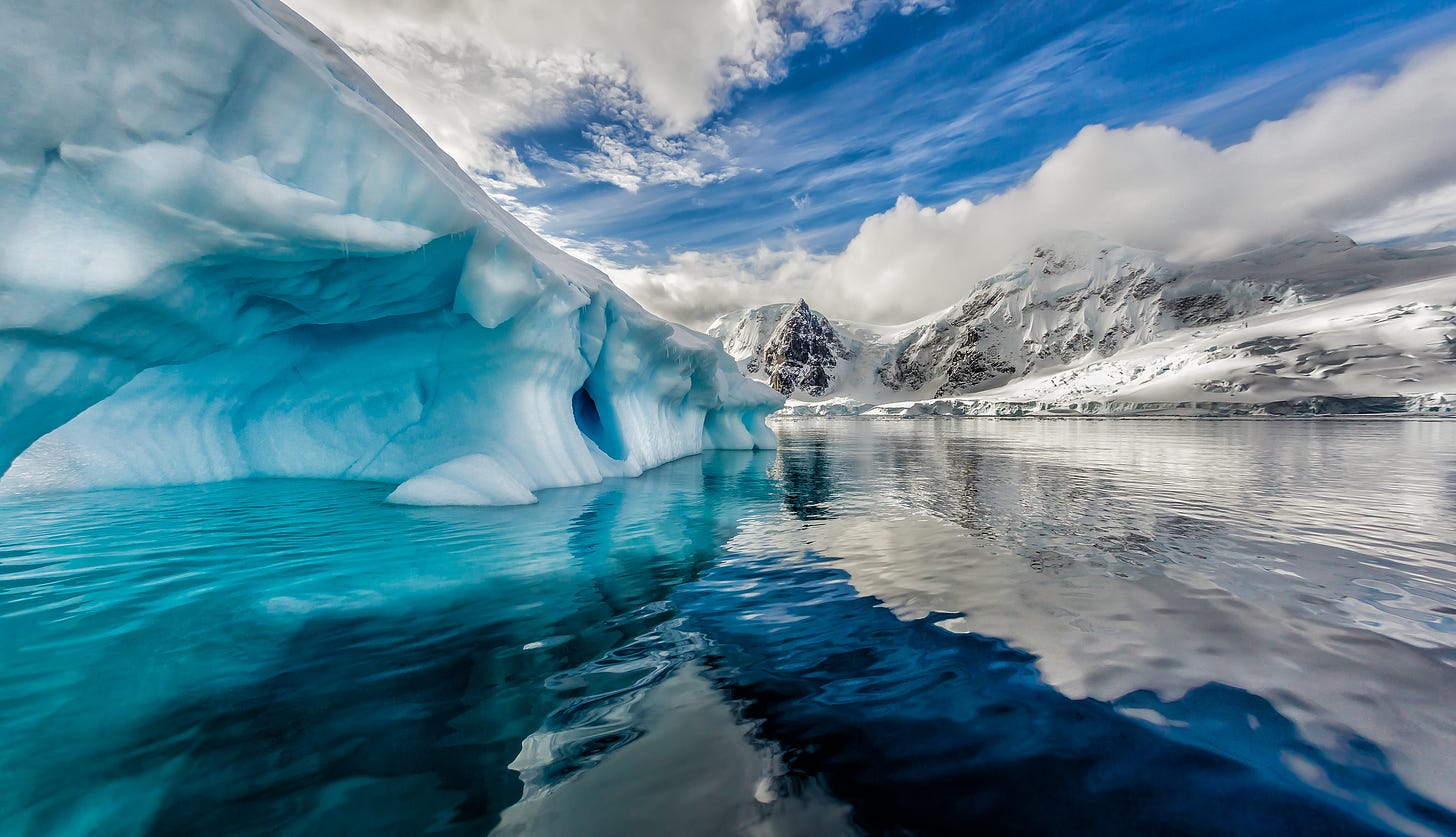The poles of Earth used to be remote, romantic places for weather-hardy adventurers and nature-loving, climate change-worrying research scientists. Now, NATO ships and British military resources are converging on both poles. Why? Because the Arctic has oil, gas, minerals, fish protein, and many other assets. But, if data is now more valuable than oil, then the Arctic is now the land of “digital gold.” GPS, SATNAV, and satellite-based WIFI are only possible because most satellites connect to Earth through massive golf-ball-shaped geodesic domes that dot the landscape inside the Arctic Circle on a tiny Norwegian island called Svalbard. Home deliveries, Uber rides, internet surfing on your smartphone, military logistics, and data transmission for the economy depend on the satellite ground stations that SvalSat (Svalbard Satellite Station) manages there. This is the home of the fastest internet cable on Earth. It’s not there for the polar bears. It’s the umbilical cord to the global digital economy.
After someone cut the main cable to SvalSat on January 6th 2022, Admiral Sir Tony Radikin, Chief of the British Defense Staff, warned that Britain and NATO heavily depend on the security of this remote and fragile digital gold critical infrastructure. He even suggested that the cable cut could be viewed as an act of war. Earlier, in 2021 the sensors on the “LoVE” cables were “knocked out”. These were part of Norway’s Lofoten-Vesterålen (LoVe) Ocean Observatory. They support SvalSat. But, even so, Radikin and all of NATO and the Norwegians quickly went silent after these cuts. No one wanted to face the prospect of a direct confrontation with Russia. Luckily, redundant backup cables were already in place, so the public remained blissfully unaware of events. GPS, SATNAV and smartphones still worked. But all this helps explain why British and American Marines are increasing their presence on Svalbard. It’s also why Turkey now formally claims it is a leader in polar research and should be made a permanent observer in The Arctic Council. It first applied for this status in 2015 alongside Switzerland, Mongolia, Greece, and the EU. In 2023, even Turkey became a signatory to the Svalbard Treaty, thus giving Turks the right to emigrate visa-free. The glittering riches of the High North are attracting predators from everywhere.
Meanwhile, old-fashioned black gold has been found in Antarctica – crude oil and a lot of it. The British Antarctic Claim alone has ten times as much oil as the North Sea produced in the last decade. Russia made the find. Not the British. It is now believed that this pool of oil could be enough to meet global oil demand for almost fifteen years. Advances in seabed mining technology mean that reserves that had been impossible to harvest are now accessible, in theory. But, Britain and other allied nations abide by the 1988 commercial protocol to the 1959 Antarctic Treaty, which prohibits seabed extraction there. These nations are also unlikely to approve deep-sea mining in the oceanic preserves, especially now that scientists have discovered ‘dark oxygen’ at 4000 meters down. Greenpeace quotes Nick Owens, the director of the Scottish Association for Marine Science (SAMS), who explains the importance of the discovery. He said, “The fact that we’ve got another source of oxygen on the planet other than photosynthesis has consequences and implications that are utterly profound.” Other nations might be less likely to honor these mining bans and environmental priorities, especially as we near 2048, which is when three-quarters of the twenty-nine signatories can renegotiate the Antarctic mining ban. China and Russia are busy gathering allies to overturn the ban. They are busy prospecting, too. In May this year, a British Parliamentary Sub-Committee heard evidence that Russia is exploring around Antarctica. Russia and China are not alone. Iranian Navy Commander Rear Admiral Shahram Irani recently said, “We have property rights there (in Antarctica), and they belong to the [Iranian] public.” “Our plan is to raise the flag there.” The Argentines are making renewed noises about challenging Britain’s claim to The Falkland Islands again since Antarctica's massive newly discovered oil beds extend there. Bickering resurfaced recently when Britain began preparing twenty-three wells to extract oil from the Sea Lion oilfield, which lies north of the Falkland Islands and outside the banned areas.
Australia also has an Antarctic Claim. It includes 42% of the continent and 6 million sq kilometers and is the largest by far of all the Antarctic Claims. The British Antarctic Claim is the largest of Britain’s official Overseas Territories. It includes more than 2 million square miles of Antarctic territory. Seven states have official claims, of which the following are geopolitically aligned and work as defense partners: the UK, New Zealand, Australia, Norway, and France. Argentina and Chile’s claims significantly overlap with the British claim. Other nations have research facilities there even though they have no official claim: South Africa, Poland, Russia, Pakistan, Japan, Italy, India, and China.
Other things are present that are now luring nations and treasure seekers to the South Pole: uranium, manganese, iron ore, and coal, in addition to oil and protein. The value of all this black gold in Antarctica and digital gold in the Arctic is indisputable.
Britain, Australia and others who have Antarctic Claims could potentially generate cold hard cash on a spectacular scale due to their positions at Earth’s poles – if they






